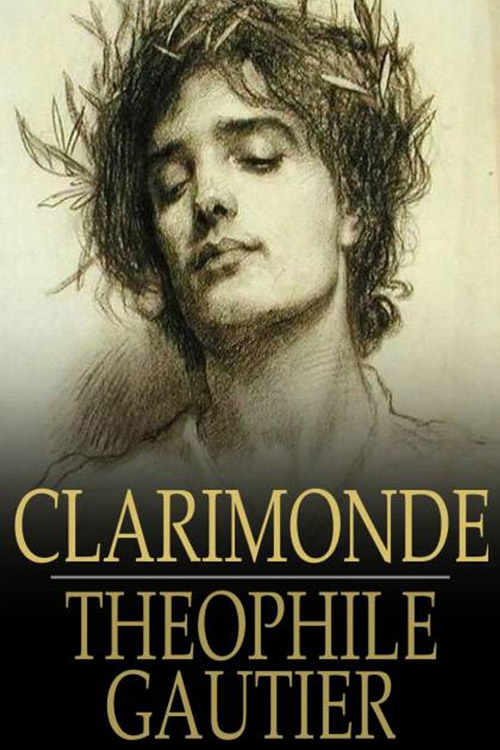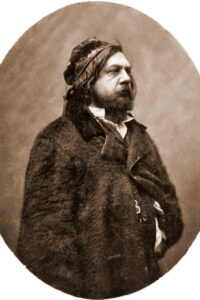
Clarimonde
I regretted nothing; I felt not the slightest hesitation at taking the last irrevocable step; I was filled with joy and impatience. Never did a betrothed lover count the slow hours with more feverish ardour; I slept only to dream that I was saying mass; I believed there could be nothing in the world more delightful than to be a priest; I would have refused to be a king or a poet in preference. My ambition could conceive of no loftier aim. I tell you this to show you that what happened to me could not have occurred in the natural order of things and to enable you to understand that I was the victim of an inexplicable fascination. At last, the great day came. I walked to the church with a light step that I fancied sustained in the air or had wings on my shoulders.
I believed myself an angel and wondered at my companions’ sombre and thoughtful faces, for there were several of us. I had passed all the night in prayer and was in a condition nearly bordering on ecstasy. The bishop, a venerable old man, seemed to me God the Father leaning over His Eternity, and I beheld Heaven through the temple’s vault. You will know the details of that ceremony—the benediction, the communion under both forms, the anointing of the palms of the hands with the Oil of Catechumens, and the holy sacrifice offered in concert with the bishop. Ah, truly spake Job when he declared that the imprudent man had not made a covenant with his eyes! I accidentally lifted my head, which until then I had kept down, and beheld before me, so close that it seemed that I could have touched her—although she was a considerable distance from me and on the further side of the sanctuary railing—a young woman of extraordinary beauty, and attired with royal magnificence.
It seemed as though scales had suddenly fallen from my eyes. I felt like a blind man who unexpectedly recovered his sight. The bishop, so radiantly glorious but an instant before, suddenly vanished away, the tapers paled upon their golden candlesticks like stars in the dawn, and a vast darkness seemed to fill the whole church. The charming creature appeared in bright relief against the background of that darkness, like some angelic revelation. She seemed to be radiant and radiating light rather than receiving it. I lowered my eyelids, firmly resolved not to open them again so that I might not be influenced by external objects, for distraction had gradually taken possession of me until I hardly knew what I was doing.
Read or download Book
Théophile Gautier
Pierre Jules Théophile Gautier (30 August 1811 – 23 October 1872) was a French poet, dramatist, novelist, journalist, and art and literary critic.
Biography.
While an ardent defender of Romanticism, Gautier’s work is difficult to classify and remains a reference point for many subsequent literary traditions such as Parnassianism, Symbolism, Decadence, and Modernism. He was widely esteemed by writers as disparate as Balzac, Baudelaire, the Goncourt brothers, Flaubert, Pound, Eliot, James, Proust, and Wilde. Gautier was born on 30 August 1811 in Tarbes, capital of Hautes-Pyrénées département (southwestern France). His father was Jean-Pierre Gautier, a somewhat cultured minor government official; his mother was Antoinette-Adelaïde Cocard. The family moved to Paris in 1814, residing in the ancient Marais district.
Gautier’s education commenced at the prestigious Collège Louis-le-Grand in Paris (fellow alumni include Voltaire, Charles Baudelaire, Victor Hugo, and the Marquis de Sade), which he attended for three months before being brought home due to illness. Although he completed the remainder of his education at Collège Charlemagne (alumni include Charles Augustin Sainte-Beuve), Gautier’s most significant instruction came from his father, who prompted him to become a Latin scholar by age eighteen. While at school, Gautier befriended Gérard de Nerval and became lifelong friends. Through Nerval, Gautier was introduced to Victor Hugo, who was already a well-known, established leading dramatist and author of Hernani. Hugo became a significant influence on Gautier and is credited for giving him, an aspiring painter at the time, an appetite for literature.
At the legendary premiere of Hernani, Gautier is remembered for wearing his anachronistic red doublet. In the aftermath of the 1830 Revolution, Gautier’s family experienced hardship and was forced to move to the outskirts of Paris. Deciding to experiment with his independence and freedom, Gautier chose to stay with friends in the Doyenné district of Paris, living a rather pleasant bohemian life.






